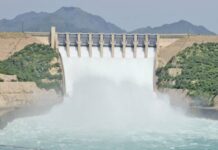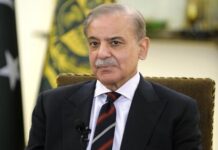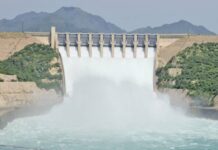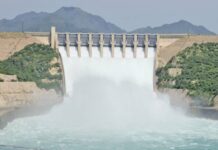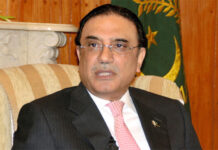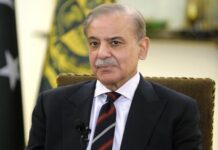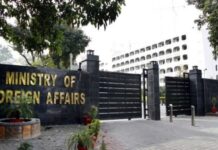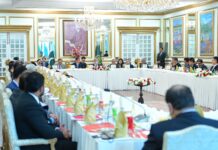ISLAMABAD, Aug 02 (APP):The Renewables First, in collaboration with New Energy Nexus and the Pakistan Private Sector Energy (PPSE) Project, launched a Cleantech Forum in Islamabad, focusing on supporting the ecosystem for cleantech startups in Pakistan.
The forum brought together investors, startups, academia, think tanks, development partners and Entrepreneur Support Organizations (ESOs) to discuss the opportunities and challenges for a thriving cleantech ecosystem in Pakistan, a news release said.
New Energy Nexus is expanding its impact in Pakistan through a partnership with Renewables First, the country’s leading think tank for energy and the environment. This partnership aims to drive economic growth, job creation, and increased international investment in Pakistan’s burgeoning cleantech sector.
“Our partnership with New Energy Nexus marks a significant milestone in Renewables First’s mission of accelerating Pakistan’s energy transition,” said Zeeshan Ashfaq, CEO of Renewables First.
Stanley Ng, Global Partnerships Director at New Energy Nexus, set the stage by highlighting global programs that support the cleantech ecosystem in various countries. He highlighted New Energy Nexus’s global footprint across 15 countries and its success in creating over 8,000 jobs.
He emphasized the catalytic funds deployed across Asia, Africa, and Pakistan’s exciting potential for cleantech innovation. “The technology is available for cleantech; we just have to package it right to sell and scale it up,” he emphasized.
PPSE launched its Cleantech Ecosystem Report, which highlighted opportunities in the cleantech sector, including e-mobility and renewables.
“We have the potential to serve 1.8 million people in off-grid communities with microgrids. However, not enough innovation is happening in renewables. We typically have traders and innovators on the business model side,” noted Mutaher Khan from Data Darbar.
During the discussions on the challenges facing the cleantech ecosystem, experts highlighted the need to bridge the activities and interventions of various market players, including international supporters, policymakers, impact investors, and funders.
Shehryar Afridi from Endeavor Pakistan emphasized the need for commercial viability to attract investors and funding. “The bridge between impact-based funding and the commercially viable stage is missing,” Afridi stated.
Echoing his sentiments, Ali Ibrahim from the Hashoo Foundation noted, “The overall startup stage itself is very nascent. Collaboration is key. For VC investors, other players must come in and collaborate.”
From the startup perspective, Ms. Sehrish Raza from BizB and Ms. Samar Hasan from EcoEdge AI (Artificial Intelligence) highlighted the need for greater customer awareness of climate solutions and for businesses to thrive in the current market ecosystem. From the ESOs, Babar Mushtaq from the National Incubation Center, Islamabad emphasized the lack of sufficient infrastructure and services needed to support these technologies.
“Synergies and support from the government are needed. There is no collaboration nexus between investors, NIC, and academia to come together and support such tech,” Mushtaq added.
The event also featured the launch of PPSE’s study “Investment Opportunities to Scaleup Electric Mobility in Pakistan” by Dr. Abubaker of LUMS, highlighting the need to scale the E-mobility solutions by streamlining the production process as well as tapping into innovative climate finance solutions.
Yusra Riaz from Accelerate Prosperity emphasized the importance for founders to explore various avenues of venture financing and proactively seek out funding opportunities. Dr. Hasan Arshad Nasir of Zyp underscored the need for transparency in financial models, advising entrepreneurs to remain authentic and focused on developing practical solutions that can gain significant traction.
Saad Farukh from Evee Fusion Engineering highlighted the critical role of innovation in product design, noting that it can help differentiate vehicles and shift consumer perceptions. Ali Moeen of Ezibike stressed the importance of building a cohesive ecosystem, including ancillary services and support infrastructure, to enable solutions to scale effectively.
PPSE Chief of Party, Ahmed Ammar Yasser, delivered the closing remarks commending the solutions-based mindset and discussions carried forward during the forum. “There are ample challenges but there are even more opportunities in Pakistan to solve our energy needs sustainably. Today’s forum has highlighted innovative solutions already in action,” said Yasser.
Participants at the forum unanimously agreed on the urgent need for stronger collaboration and synergies within the market ecosystem. By aligning the efforts of investors, startups, government bodies, and academia, Pakistan can effectively support and leverage the growing global clean energy market.
مضمون کا ماخذ : números dupla sena



